Every weekend, my son wakes up and rushes downstairs to play video games. Sometimes, I’ll join him if I wasn’t up too late playing video games the night before. One recent weekend, he came bounding back upstairs incredibly excited because he beat The Legend of Zelda: Breath of the Wild.
This confused me for a moment – and not just because he had jumped on me in a deed sleep. The last time he had updated me on his progress (the day before), he had only just beaten a second Divine Beast and maybe completed half of the Shrines. There was no way he’d beaten the game in an hour that morning. But, as he explained it, he had gone to Hyrule Castle and defeated Calamity Ganon, and now, the game was completed. “That’s not really beating the game,” I wanted to say. My wife, an expert mother, even when groggily awoken by a child excited over something she is wholly uninterested in, saw my son’s excitement and stopped me with a look.
I wanted to inform him that there was so much left to do in the game, and he’d hardly even completed any of the sidequests littered around Hyrule. I wanted to explain that he hadn’t stepped on every inch of the world, the line of the Hero’s Path not turning his world map into a giant green lake. I wanted to inform him that he had two more Divine Beasts to defeat, secrets to uncover, and adventures to have. I wanted to tell him to get his butt back downstairs and actually beat the game. However, he wanted to start playing Tears of the Kingdom.
This story is just the most recent example of a conflict between my son and me that has simmered since he first watched me play video games with enough cognitive ability to understand what was going on. We do not play video games the same way, and it has taken me multiple years to come to grips with this fact.
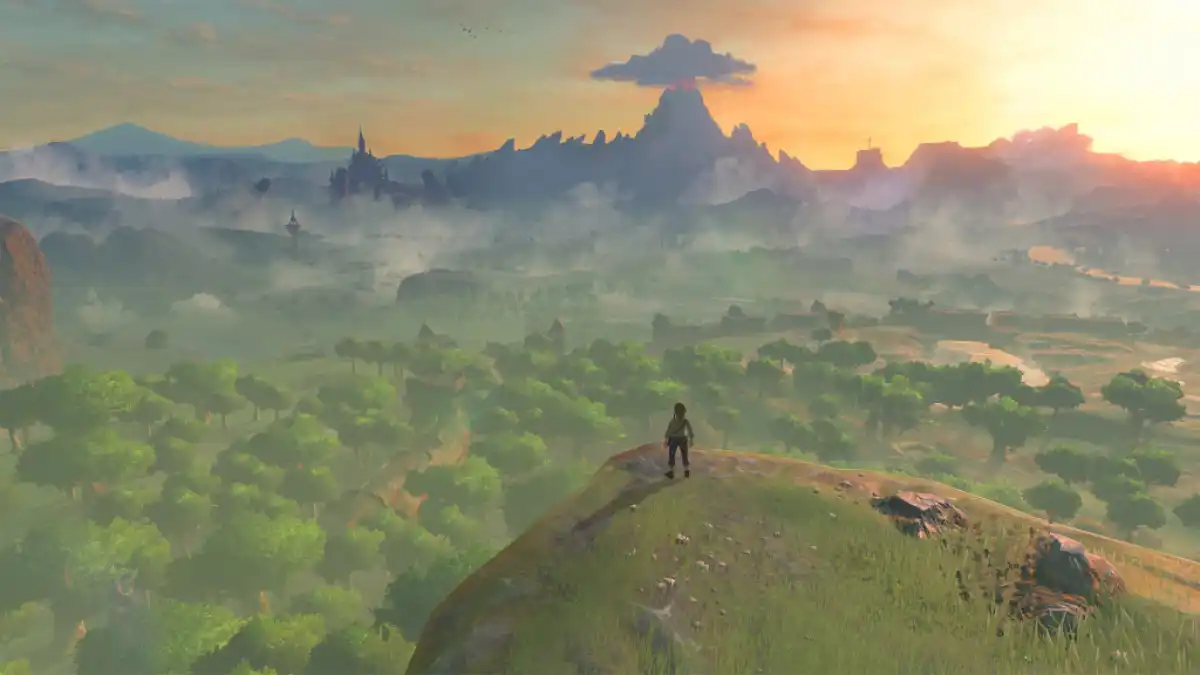
What’s the Point?
I don’t want anyone to get the wrong idea here. I am not a completionist. Hell, I was barely playing games for a while there. Most of my beaten games do not sit at 100%, but I also try to get everything I can in the natural course of playing the game. I’ll spend hours completing a side quest for a digital reward, but if I miss a hidden treasure sitting in some dark corner of a game, I don’t feel the obligation to go find it after the fact. I’d call myself an explorationist – if I’m allowed me to coin a term. My son, who is nine, sees gaming as a far straighter line of getting from point A to point B to beat the game. As you can tell, this can create some conflict when playing games together or even discussing them.
The signs were all there early on that how I played was not how he wanted to play. We’ve played through multiple Zelda games together at this point, and in every single one, he’s more interested in charging ahead than exploring. “Why aren’t we going to the next dungeon since we got the tool to beat it?” “Why are you fishing again?” “Why don’t we go fight that bad guy?” “Stop running around this lake pointlessly!” “Do we really need another heart? We have enough!” He didn’t see the games as worlds to unfold but challenges to overcome, and for me, who unpacks meaning and context in everything for a living, that felt like totally missing the point.
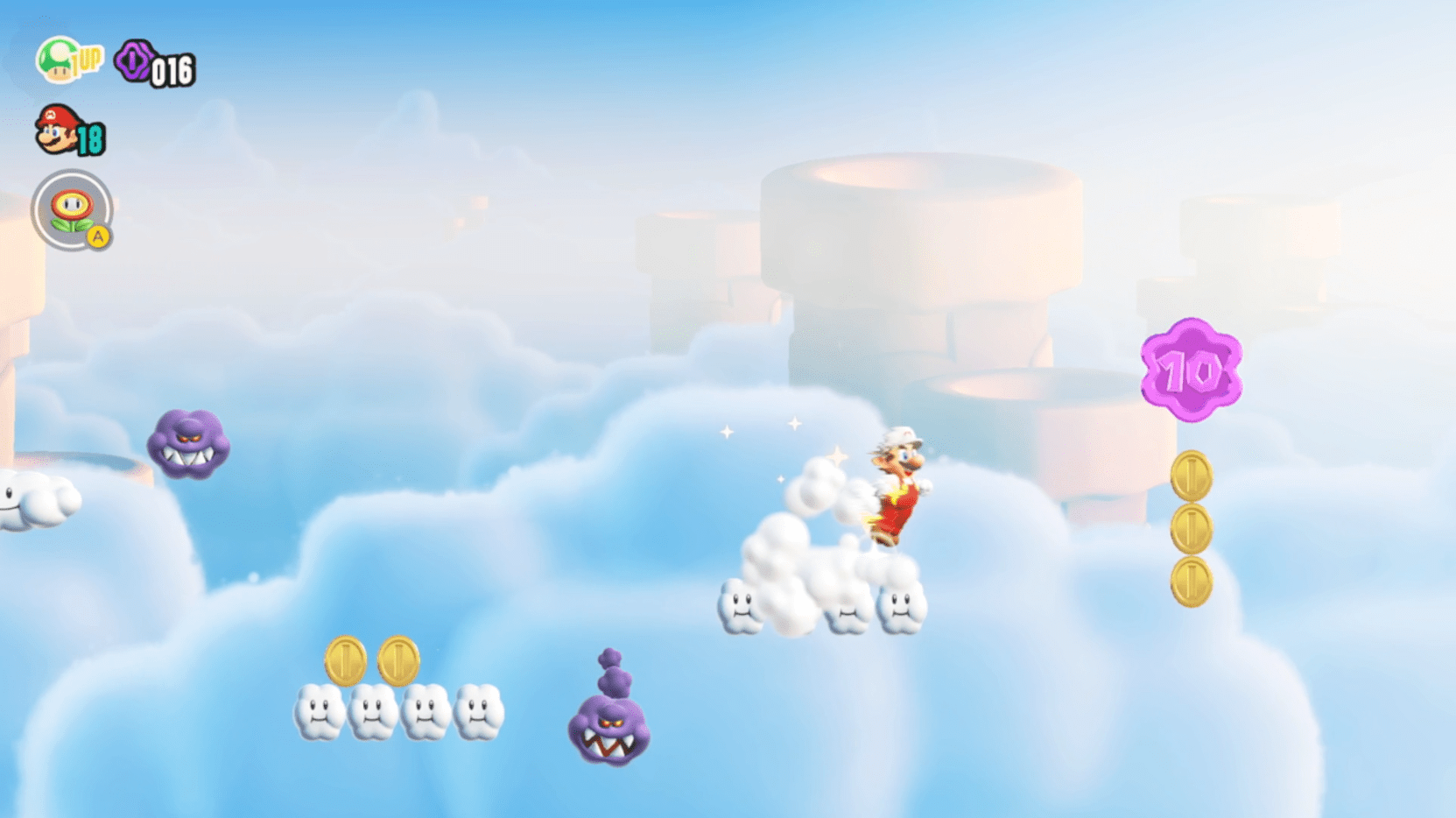
This wasn’t just for games with bigger worlds like Zelda, however. Just some recent examples include playing through Super Mario Wonder and him having zero interest in collecting purple coins, let alone restarting a level, as I wanted to if we missed one; playing Teenage Mutant Ninja Turtles: Shredders Revenge and sprinting through the levels without any care for the random hidden pick-ups; him watching me play Unfinished Swan (the backlog is real) and completely not understanding the point; and wanting to watch only the boss battles in nearly any game involving exploration. The most shocking moment came when he decided he wasn’t having fun with Pokémon Legends: Arceus and just stopped playing it. Stopped. Playing. A. Game. I don’t do that.
This is possibly partially my fault. His gaming time is limited both with me and by limits we put on his screen time. Part of his attitude definitely stems from the fact that a child perceives the now as the most important thing, and if he’s got 30 minutes of screen time, he’s calculating what he can do in that time to get as far as possible in his game. When we play together, it’s not some long marathon, either, as daily life is occurring, and he’s a busy kid. That being said, it still made me wonder why my son wouldn’t see that the fun of video games was exploring the world, challenging yourself, or digging deep into a mechanic. Why couldn’t he come around to the way I play games? Turns out, I was asking the wrong person why.
Why?
As a parent, you hear this question a lot. Kids want to know why we do things because they want to know how the world works. They’re learning, and their minds are growing, so they ask “why” to everything. It is annoying, to say the least. It is especially annoying when you don’t have an answer and even more annoying when that answer is something personal and not a fact you can quickly ask Google about. My son asked why we needed to do things in games a lot.
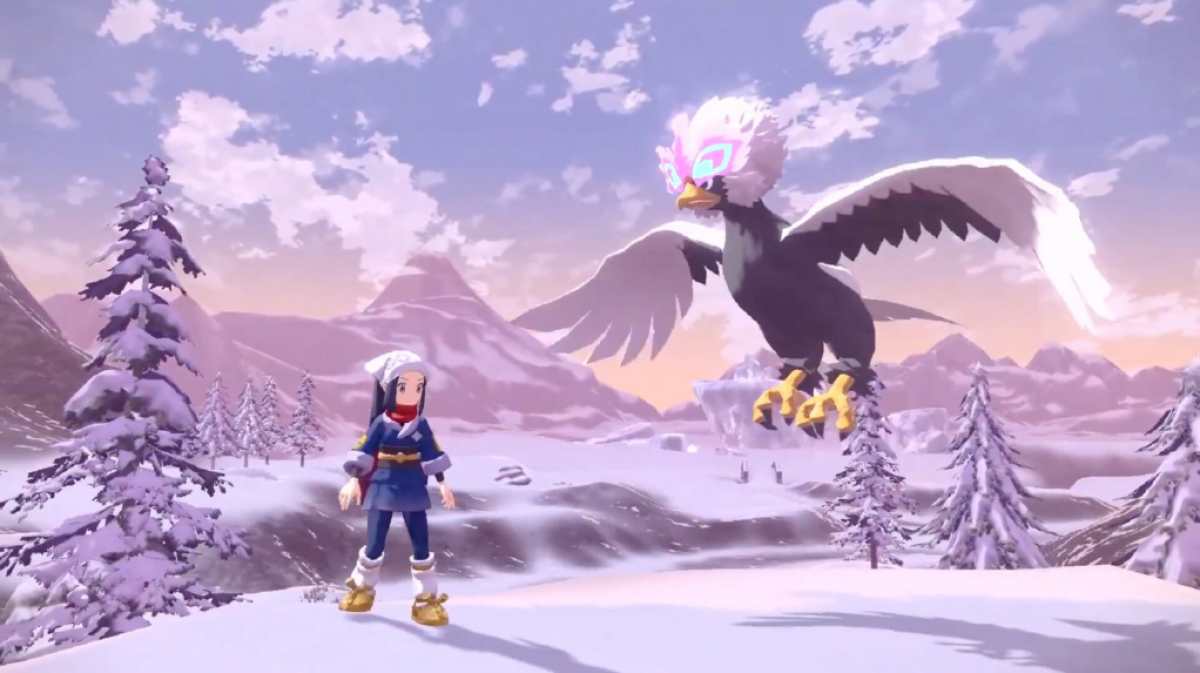
It outright annoyed me. I thought this was because he didn’t understand THE POINT. You know, the universally understood point of video games that we all agree on. That point is, of course, the fun of exploring a world, unlocking all the challenges you can, and discovering all the secrets. How can my son not understand that that is the reason we’re playing video games? That’s how you have fun. But the more a child asks you why, the more you start asking yourself that. You start looking at why you play games the way you do.
I find that stuff fun, to be honest. Many of you are probably scratching your heads right now, thinking I seem kind of over the top, and others are looking at this and going crazy because I can live with a game on 99% completion. The fact alone that I wouldn’t put a video game down until I’ve beaten it, even if I’m not especially enjoying it, means there’s something a bit wrong with me, something that I can’t answer the “why” of. Not being able to answer the “why” of something is very annoying because it confronts you with actually challenging yourself. That’s hard.
That’s what I had to do, though, every time I’d run over to some sidequest of a sidequest or extra challenge that didn’t lead to the end of a level. Eventually, his question became my question as I watched him play games, getting steadily more annoyed that he wasn’t checking out every nook and cranny. Why was I annoyed when he was having fun? Well, because, in the end, my answer to his “Why?” is that I’m having fun. This is how I have fun playing games.
Very slowly, I realized he was having fun, too, and my annoyance did not stem from him doing something wrong but doing something different. And so, I came around to him playing how he likes. It wasn’t some epiphany but instead a gradual shift in perspective. I’m not saying I’m perfect or that I don’t wish we could play similarly sometimes, but at least now, I can watch him run right past an extra challenge or sidequest and only have my left eye twitch once or twice. Progress!
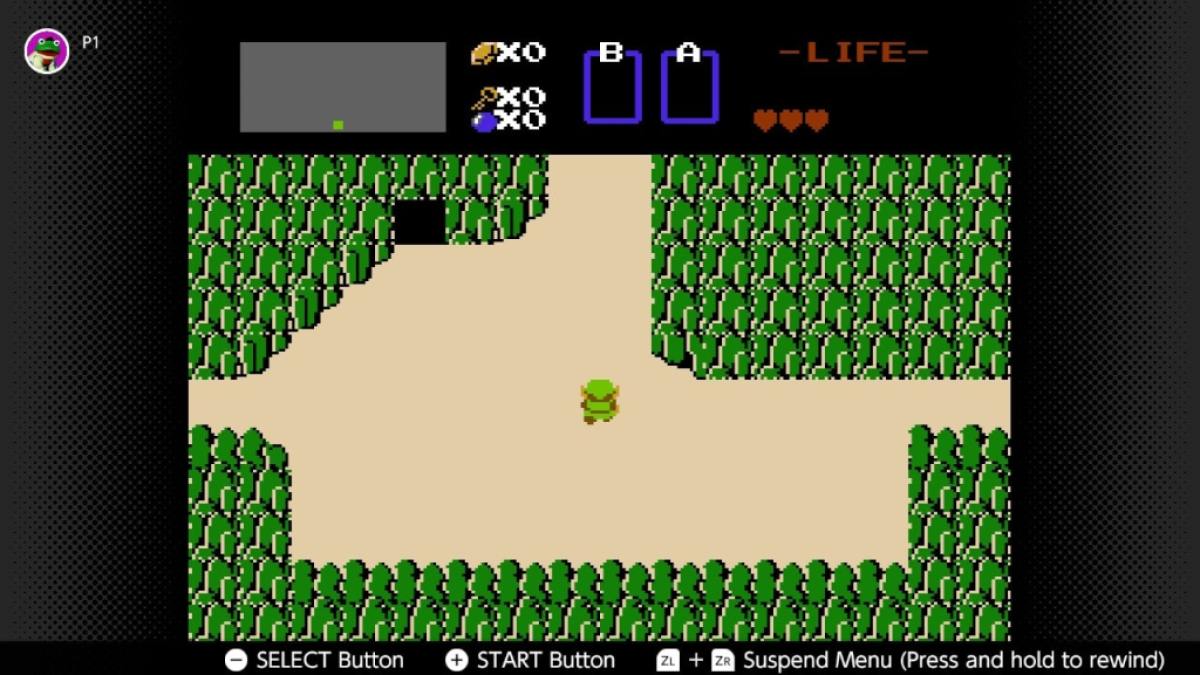
Reset
One last note on why I’ve learned to let things slide when playing with my son: children are constantly changing. It’s hard to remind yourself of that at the moment when you’re kid does something wrong or keeps repeating bad behaviors (neither of which playing games differently is), but my son has so much life ahead and so little behind. He’s still being formed, and maybe his future form will be a completionist, or maybe he won’t game at all.
Hell, it’s very possible this is how I played video games at his age, though gaming back then was very different. There were fewer games, and you spent more time with them, basically necessitating the need to dig deeper into each and every one. I had a grand total of two Zelda games to play by the time I was nine in 1992, and one of them was on a system not hooked up to the TV anymore. He has nearly all of them, every Mario game, and my entire gaming library at his fingertips. With that much to play, who can blame him for wanting to play fast? My son is in a different video game world than I was at nine, and I can’t even remember how exactly I played video games then. It’s entirely possible I was exactly like him, but I just didn’t realize since the opportunities to play more freely weren’t there or, more likely, I’ve just completely forgotten.
The point I learned was to let it slide because he is not a mini version of me – he is his own person. He’ll play games the way he wants to, and there are few things better than sharing in that fun.
Legend of Zelda: Breath of the Wild is available on the Nintendo store.

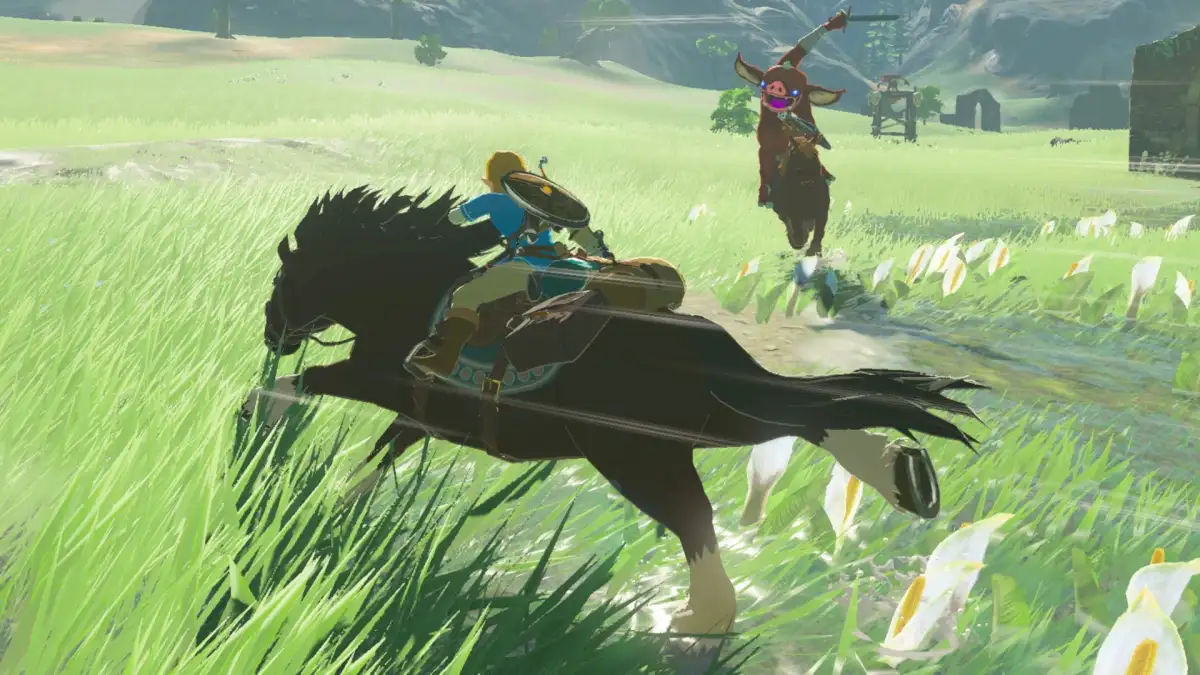




Published: Feb 16, 2024 02:21 pm